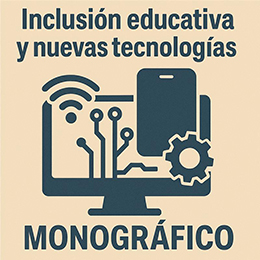About the MOOC model: philosophy, cost and structure
DOI:
https://doi.org/10.51302/tce.2015.37Keywords:
e-learning, MOOC, ICT, on-line education, learning model, new technologiesAbstract
In an increasingly complex of jobs that are constantly evolving, and with prospects, according to the McKinsey Global Institute, that by 2020 there will be about 85 millions killed jobs (Shen, 2014), all motivated by the rapid change generates technology, training is an important turning point. With universities preparing students for encyclopedic knowledge, skills and human values, many are wondering how it will change the method of learning the coming years, in order to adapt ourselves to new challenging technologies. Some people saw the MOOC as a panacea for achieving in disruption of learning environments, but it is true that we have seen that this disruption is not such from a methodological point of view. There are MOOC that do not generate the change as expected in the learning mode based on the receiver of teaching. The director of a major MOOC european platforms call FutureLearn has made statements about the MOOCs are not going to transform Education. In any case, the so-called «digital natives» demand new ways of learning and today the MOOC are the advance with which it is experienced in new ways learning with an education based on new technologies.
Downloads
References
Bartolomé, A. [2013]: «Qué se puede esperar de los MOOC», Comunicación y Pedagogía, núm. 269-270, págs. 49-55.
De Waard, I. I. [2014]: MOOC yourself. Set up your own MOOC for business, non-profits, and informal communities. Autoedición de la autora, 2.ª versión del original publicado en 2013.
Goral, T. [2013]: «SPOCs may provide what MOOCs can’t», UB University Business. Disponible en: http://www.universitybusiness.com/article/spocs-may-provide-what-moocs-can%E2%80%99t.
Parkingson, S. [2014]: Do dead lines improve MOOCs? Disponible en: https://steveparkinson101.wordpress.com/2014/03/17/do-deadlines-improve-moocs
Pernías, P. y Luján, S. [2013]: «Los MOOC: orígenes, historia y tipos», Comunicación y Pedagogía, núm. 269-270, págs. 41-48.
Shah, D. [2015]: MOOC Watch Jan 2015: on-line courses raise their game. Disponible en https://www.class-central.com/report/moocwatch-jan-2015-online-courses-raise-game
[2014]: How does coursera make money? Disponible en: https://www.edsurge.com/n/2014-10-15-how-does-coursera-make-money
Shen, C. [2014]: Announcing nano degrees: a new type of credential for a modern work force. Disponible en: http://blog.udacity.com/2014/06/announcing-nanodegrees-new-type-of.html
Young, J. R. [2013]: Beyond the MOOC hype: a guide to higher education’s high-tech disruption, Washington DC, EE. UU., The Chronicle of Higher Education.
Downloads
Published
How to Cite
Issue
Section
License
Copyright (c) 2015 Gorka Jakobe Palazio Arko

This work is licensed under a Creative Commons Attribution-NonCommercial-NoDerivatives 4.0 International License.


























